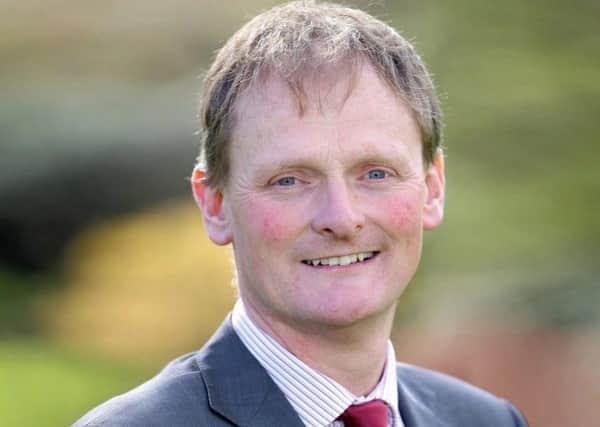UFU meets with MLAs on CC Bill


The committee said that to their disappointment, only Clare Bailey (Green Party), Mark Durkan (Social Democratic and Labour Party) and Claire Sugden’s representative (Independent) set time aside to listen to the genuine concerns of Northern Ireland (NI) farmers regarding what has been proposed in the bill.
UFU deputy president David Brown said: “Our UFU environment committee is made up of farmers from every sector across NI and yesterday they were representing our wider UFU membership on the matter of climate change – the most pressing issue globally, at this point in time. It’s extremely regrettable that only two MLAs participated in the meeting which was set up to allow our farmers to engage directly with local politicians who are in support of the Private Member’s Bill. It was our farmers’ opportunity to highlight why the proposals are going to be so significantly detrimental to the NI’s agri-food industry while having a knock-on effect on rural communities that will be hit hard if the proposals are legislated.
Advertisement
Advertisement
“The UFU will be following up with other MLAs who did not participate in the meeting in the coming days.”
During the meeting, the UFU said the environment committee showed their willingness to take action to address climate change and reduce on-farm emissions. However, they stressed that the legislative framework must be fair and balanced, supporting NI farmers to reduce emissions without restricting or lessening their ability to produce the high-quality food that is needed to feed UK consumers rather than having to import food from the rest of the world.
“New information from the Climate Change Committee (CCC) has set out that even with a 50 percent cut in meat and dairy production and an increase in forestry, this would still not be enough for NI to hit net zero by 2050. Abolishing half of the meat and dairy industry is totally unacceptable.
“Our members emphasised that this could result in 50,000 job losses in NI and would be the ruination of our livestock sectors, both of which are major driving forces within agriculture, one of our most successful industries. Not to mention how it would affect other areas such as tourism and recreation.
Advertisement
Advertisement
“Our members have key concerns about the lack of evidence supporting the proposed 2045 target. No economic impact assessment and no rural needs assessment have been carried out. When legislation is put forward by any of our Ministers, all of these assessments must be completed before the Bill is passed. These assessments have their purpose and having skipped this process, it’s clear that our MLAs lack understanding about the consequences of this Bill,” said Mr Brown.
“Throughout the pandemic it was reiterated constantly about the need to follow data and advice during the COVID-19 pandemic. However, on this occasion our MLAs are clearly ignoring the expert advice from the CCC which is outlining that a net zero target before 2050 cannot credibly be set for NI.
“Our politicians need to listen to the expert advice presented to them and focus on achieving climate change legislation that is fair and will deliver emissions reductions. Our farmers are not the problem, they are part of the climate change solution,” said Mr Brown.
Clare Bailey MLA said of the engagement: “The meeting with the Ulster Farmers Union was useful and afforded an opportunity to discuss and explore the core aspects of the Climate Bill.
Advertisement
Advertisement
“The meeting was also attended by representatives of the Climate Coalition for NI and is part of a series of engagements with various sector representatives including organisations concerned with transport policy, energy policy and manufacturing and skills.
“It was significant that the meeting took place on Earth Day, the theme for Earth Day 2021 being Restoring Our Earth. The meeting today reinforced the vital role that farmers and farming communities will play in restoring our earth through nature friendly and low carbon farming practices.”